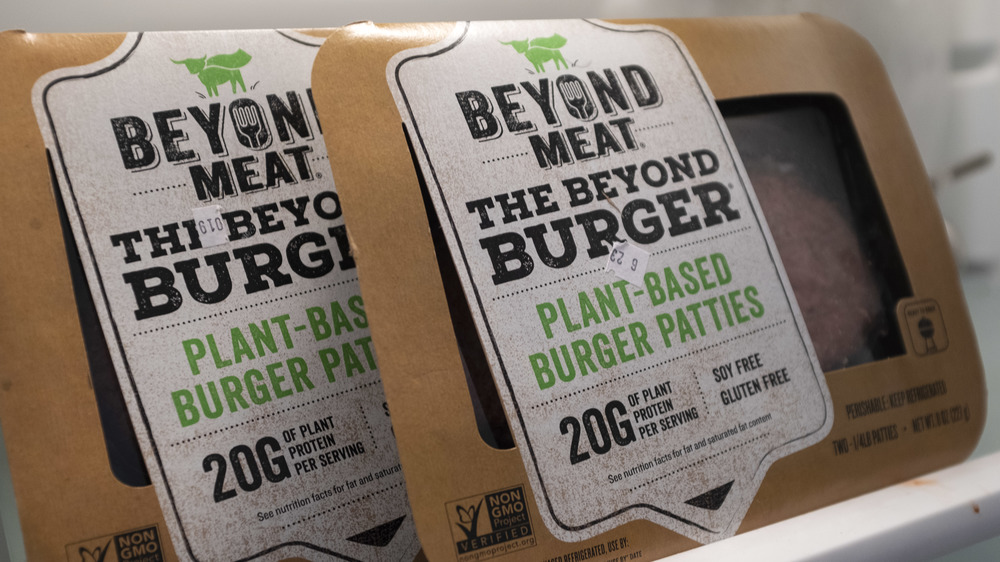This Is Why Plant-Based Meat Is So Expensive
If you've ever found yourself in the meat section of the grocery store, contemplating your dinner options, and been tempted by the plant-based meat options like Beyond or Impossible, you're definitely not alone. It's hard not to love the idea of something that tastes like meat, feels like meat and provides the same nutritional value, without the environmental and humanitarian costs of factory-farmed beef or chicken. But more than likely, you've been through what happens next, one glance at the price tag, and all those good intentions can go out the window.
According to Vox, the average price for a meat alternative in the U.S. was $9.87 a pound. Beef was only $4.82 a pound, less than half the price. So why is the newer vegan meat, which has taken supermarket shelves and fast food menus by storm, so darn expensive? Aren't veggies supposed to be cheaper than meat? As one Reddit user put it, "Fewer or no government subsidies + smaller market + smaller production scale = higher prices." They're close, but allow us to explain.
The plant-based meat industry is up against new challenges
The meat industry has a well-established foothold on the U.S. market, thanks to a lot of practice with cutting costs, which make meat artificially cheap. According to Zak Weston of the Good Food Institute, who spoke to Vox, "It's not the case that plant-based meat is weirdly expensive or labor intensive or something. The animal protein industry has spent decades wringing incredible efficiencies out of every part of the program. Animal meat gets to externalize a lot of its negatives — externalities like health care, ecological, worker welfare, animal welfare." The meat industry is also heavily subsidized by the US government — as much as $38 billion according to an estimate from the book Meatonomics, which helps keep costs low.
Plant-based meats, especially the ones that have grown rapidly and gained much hype, haven't had as long to establish supply chains and to amass a lot of competition, which would bring prices down, according to Business Insider. High quality yellow pea protein, a main ingredient in plant-based meat substitutes, for example, isn't very easy to source (via Inbound Logistics). What's more, consumers have so far shown they're willing to pay a premium for plant-based meats — and they're flying off the shelves (via Business Insider). Chances are, prices will fall eventually, but for now you're paying extra for that pea-protein patty (via Business Insider).

